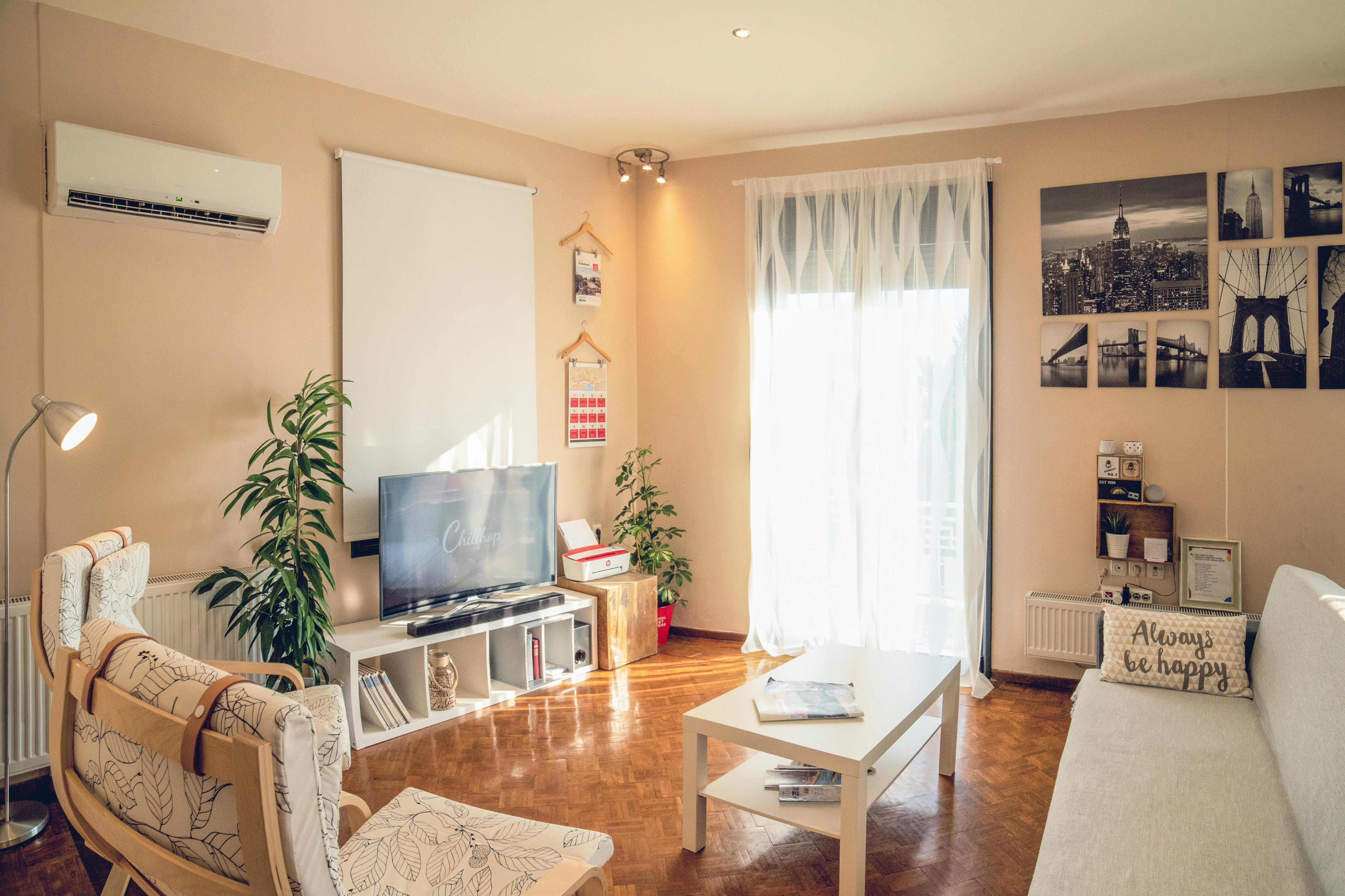Earn Income from Airbnb Without Owning Property: A How-To Guide
Unlocking Profitable Opportunities in the Airbnb Ecosystem Without Owning Property
TL;DR: Discover how to navigate the thriving Airbnb industry without the need for property ownership. From rental arbitrage to becoming an Airbnb co-host, this article explores various methods individuals can use to generate income, manage finances effectively, and capitalize on the latest trends in the Airbnb market. Learn about the importance of financial planning, leveraging affiliate programs, offering property management services, and more to successfully operate within the Airbnb domain.
Table of Contents:
1. Financial Planning and Management for Airbnb Entrepreneurs
2. Rent your rental
3. Property management
4. Airbnb affiliate
5. Housecleaner
6. Airbnb experience host
7. Airbnb house-sitter
8. Airbnb co-host
9. Summary
10. Read more
11. Your money deserves more than a soundbite
12. Trending
13. Barclays Online Savings review ($200 bonus)
14. The best robo-advisors
15. How to get out of debt fast
16. How to start investing with little money
17. Free net worth spreadsheet
18. The best apps for tracking your net worth
19. Vanguard Digital Advisor review
The Airbnb platform has revolutionized the way people travel, offering unique and personalized lodging options around the globe. However, the opportunity to profit from Airbnb extends far beyond property ownership. Whether you’re looking to engage in rental arbitrage, start a property management business, or capitalize on affiliate marketing, there are numerous avenues to explore within the Airbnb ecosystem. This article delves into practical strategies for individuals to generate income through Airbnb without owning property, emphasizing the significance of creativity, entrepreneurial spirit, and effective financial management.
Financial Planning and Management for Airbnb Entrepreneurs
Navigating the financial landscape of an Airbnb business requires a careful and knowledgeable approach. For entrepreneurs venturing into the world of Airbnb, understanding the intricacies of financial planning and management is crucial. From the get-go, initial setup costs—from furnishing to meeting regulatory standards—demand significant investment. However, the financial implications extend far beyond these initial expenses.
Successful management of an Airbnb enterprise involves meticulous budgeting for both foreseeable and unforeseen costs, such as utilities, cleaning services, and maintenance. A detailed plan that anticipates rental demand fluctuations is essential for sustaining profitability. Tools and techniques for accurate financial tracking and analysis are indispensable, offering insights that guide pricing strategies and operational decisions. As this article explores various ways to earn income through Airbnb, the foundational aspect of financial planning and management serves as a critical starting point for anyone aiming to thrive in this competitive landscape.

Financial Planning and Management for Airbnb Entrepreneurs
Managing a successful Airbnb venture requires meticulous financial planning and management. The initial setup costs for an Airbnb business can be significant, including furnishing, decorating, and ensuring the property meets regulations. Beyond these initial expenses, ongoing costs such as utilities, cleaning, supplies, and maintenance must be budgeted for. A savvy Airbnb entrepreneur also sets aside funds for emergency repairs and unexpected vacancies, which are inevitable in the hospitality business.
Understanding and managing cash flow is crucial for an Airbnb business’s sustainability and growth. Rental income must exceed the ongoing expenses to generate profit. This might seem straightforward, but the dynamic nature of the hospitality industry, with its seasonality and fluctuating demand, makes financial management a complex task. Airbnb hosts must develop a clear financial plan that includes detailed budgeting, forecasting, and the establishment of financial reserves to handle the ebbs and flows of rental demand.
Tools and techniques for financial tracking and analysis are vital for any Airbnb entrepreneur. Several software solutions and platforms are designed specifically for real estate and rental management, offering features like expense tracking, income management, and financial reporting. Leveraging such tools can provide clear insights into the financial performance of an Airbnb business, helping hosts to make informed decisions about pricing, promotions, and cost management.
One often overlooked aspect of financial planning for Airbnb entrepreneurs is the provision for taxes. Rental income is taxable, and understanding the local tax laws and obligations is necessary to avoid unforeseen liabilities. In some jurisdictions, additional tourist or occupancy taxes apply to short-term rentals, making it essential for hosts to incorporate these considerations into their pricing and financial planning.
The key to a profitable and sustainable Airbnb venture lies in diligent financial planning and management. By carefully budgeting for both expected and unexpected expenses, actively managing cash flow, leveraging tools for financial analysis, and staying informed about tax obligations, Airbnb entrepreneurs can position their business for long-term success. This approach not only ensures the business remains financially viable but also sets the foundation for future growth and expansion in the competitive short-term rental market.

Structuring Your Property Management Business
In the rapidly expanding market of Airbnb and short-term rentals, establishing a property management company specifically tailored to cater to these properties can offer a lucrative business opportunity. The first, and perhaps most critical, step in creating a property management business for Airbnb properties is to lay down a solid legal and financial foundation. This initial phase of structuring your business properly is paramount to ensuring its long-term success and sustainability.
Choosing a Business Entity
The type of business entity you choose can have significant implications for taxation, liability, and the overall operation of your business. The most common types of entities for a property management business include Limited Liability Companies (LLC), S Corporations, and sole proprietorships. Each has its benefits and drawbacks:
- LLCs are favored for their flexibility and protection; they safeguard personal assets from business liabilities while offering pass-through taxation.
- S Corporations offer benefits in terms of self-employment tax savings but come with stricter operational requirements.
- Sole Proprietorships might be a simple option to start with but offer no personal liability protection.
It is advisable to consult with a legal or financial advisor to choose the entity that best suits your business goals and personal situation.
Registering the Business
Once you’ve selected your business entity, the next step is to officially register your business with the state. This process typically involves filing paperwork with your state’s Secretary of State office, obtaining a Federal EIN (Employer Identification Number) for tax purposes, and possibly registering for state taxes.
Obtaining Necessary Licenses and Insurance
Depending on your location, you may need specific licenses to legally operate a property management business. Research local regulations to ensure you comply with any municipal licensing requirements, as these can vary significantly from one jurisdiction to another.
Equally important is obtaining the right insurance to protect your business and its assets. At a minimum, you’ll want general liability insurance to cover potential accidents or injuries. Additionally, professional liability insurance (also known as errors and omissions insurance) can protect against claims of negligence or inadequate work.
Lastly, considering property management involves handling client money, a fidelity bond (or dishonesty bond) can provide an extra layer of trust and security for your clients by protecting them against potential theft by employees.
Importance of Legal and Financial Groundwork
The importance of meticulously planning and implementing the legal and financial groundwork of your property management business cannot be overstated. This foundational work not only protects you and your assets but also establishes credibility with prospective clients and partners. Proper structuring ensures that you are prepared for the complexities of managing Airbnb properties, from navigating client contracts to resolving potential disputes.
Understanding that establishing a solid legal and financial base is just the starting point, the journey ahead in building a successful Airbnb property management business involves continuous learning, adaptation, and strategic planning.

Eligibility Criteria for the Airbnb Affiliate Program
Becoming an affiliate for Airbnb opens a unique opportunity for content creators, influencers, and website owners to monetize their platforms by promoting one of the leading names in travel accommodations. However, before diving into the alluring prospect of earning through referrals, it’s crucial to understand the eligibility criteria that Airbnb has put in place for its affiliate program. Here, we dissect the essentials to help potential affiliates gauge their readiness and fit for the program.
Content and Platform Requirements
At the core, Airbnb seeks affiliates with a robust online presence, be it through a heavily trafficked website, a blog dedicated to travel and lifestyle, or influential social media channels. The common thread among successful applicants is a focus on delivering quality content related to travel, accommodation, and experiences that align with Airbnb’s offerings.
For content creators and influencers, having a dedicated audience interested in travel or rental-focused content is pivotal. This doesn’t mean your entire platform needs to revolve around travel, but a significant portion should resonate with the themes of exploration, accommodation reviews, travel tips, or unique rental finds.
Traffic and Follower Minimums
Airbnb has not publicly listed specific numbers regarding the minimum traffic or follower count. However, it’s inferred that potential affiliates should command a significant online influence or have a website with considerable monthly traffic. The aim is to ensure that partners can drive meaningful engagement and conversions through their referral links. For influencers, the quality of engagement often prevails over mere numbers.
Geographic and Demographic Considerations
While Airbnb operates globally, the affiliate program might have restrictions or specific focuses on certain geographic locations based on the strategic objectives of the platform at any given time. It is advisable for affiliates to cater content to demographics that align with Airbnb’s target markets – travelers seeking unique and authentic experiences.
Ethical Marketing and Authenticity
Beyond numbers and content relevance, Airbnb places a high emphasis on ethical marketing practices and authenticity. Potential affiliates are expected to maintain transparency with their audience, especially when promoting Airbnb listings. This involves clear communication that the content is sponsored and adhering to truthful representations of experiences and listings.
Final Thoughts on Eligibility
Before applying, it is crucial for potential affiliates to conduct a self-assessment against Airbnb’s criteria. Ensuring that your platform focuses on quality, relevant content with an engaged audience can significantly increase your chances of being accepted into the program. For those on the cusp regarding traffic or follower counts, focusing on building your audience and enhancing the quality of your content could be key steps before applying.

Setting up Your Cleaning Service
Starting a specialized cleaning service tailored to meet the unique needs of Airbnb hosts involves a series of strategic steps. Initially, sole focus should be on the legal and preparatory groundwork necessary to establish a professional, reliable service that adheres not only to general business principles but specifically aligns with the standards and expectations unique to Airbnb rentals.
Legal Structuring and Licensing
The first step in setting up a cleaning service is to decide on the legal structure of your business. This can range from a sole proprietorship to a limited liability company (LLC), each with its advantages and tax implications. A sole proprietorship is simple to start but offers no personal asset protection in case of business liabilities. In contrast, an LLC offers limited liability protection, separating business liabilities from personal assets. It is crucial to consult with a legal expert to determine the best structure for your business based on your financial situation and business goals.
Following the choice of business structure, obtaining the necessary licenses and permits comes next. This might include a business license from your city or county, and possibly a special cleaning business license if your state requires one. Each administrative body has its own set of rules and fees, so it’s important to research the specific requirements in your area.
Insurance
Obtaining comprehensive insurance is vital for protecting your business and assets. Liability insurance will cover you in the event of damage to a client’s property or injury to a person caused by your cleaning services. Additionally, consider workers’ compensation insurance if you plan to hire employees, as it will cover them in case of work-related injuries.
Basic Equipment and Supplies
Securing high-quality cleaning equipment and supplies is fundamental. This includes professional-grade vacuum cleaners, mops, cleaning solutions, and microfiber cloths. While the initial investment might be considerable, investing in durable, effective tools will pay off in the long run by making your services more efficient and satisfactory to clients.
Detailed Business Plan
A detailed business plan is indispensable for laying the foundation of a successful cleaning service. This plan should clearly outline your business objectives, target market (specifically Airbnb hosts in this case), competitive analysis, pricing strategy, marketing and sales strategies, operational plan, and financial projections. It’s critical to address how your service will meet the elevated cleanliness standards that Airbnb hosts require for their properties. This may involve detailing training plans for staff on these specific standards, as well as any special equipment or supplies needed to meet them.
The business plan should also cover your strategy for competitive pricing and operational efficiencies to maintain profit margins. Understanding the unique demands of cleaning Airbnb properties, such as quick turnovers and high standards, and incorporating these into your business model, will be essential. Establishing a plan that accommodates the flexibility needed by Airbnb hosts, while also being financially viable, is a crucial balancing act that will set the stage for the success of your specialized cleaning service.

Brainstorming Unique Experience Ideas
The cornerstone of becoming a successful Airbnb experience host lies in conceptualizing and offering unique and engaging activities. These experiences not only cater to the desires of tourists seeking authentic, memorable moments but also distinguish your offerings in a crowded marketplace. To craft such experiences, it’s essential to delve into personal passions, leverage local culture, and identify untapped niches that align with burgeoning trends in travel and leisure.
Tapping into Personal Passions and Stories
A compelling Airbnb experience often stems from the host’s enthusiasm and expertise in a specific area. Whether it’s a characteristic skill, hobby, or a deep understanding of local history and culture, these personal elements can transform ordinary activities into extraordinary escapades for guests. Authenticity plays a significant role here; guests are increasingly seeking genuine, immersive experiences that allow them to connect on a personal level with their hosts and the communities they visit.
Exploring Local Culture
Local culture is an inexhaustible source of inspiration for curating Airbnb experiences. This might involve crafting tours that showcase hidden gems, traditional culinary experiences, art and craft workshops, or insider-access events that tourists wouldn’t find on their own or through mainstream travel guides. Think about what makes your location unique—be it its history, cuisine, architecture, or festivals—and how you can offer an engaging window into these aspects.
Identifying Untapped Niches
An untapped niche might be a theme or activity that hasn’t been fully explored in your area’s tourism scene. This requires research and creativity: consider merging different interest areas, targeting specific demographics (such as families, couples, or solo travelers), or emphasizing sustainability and eco-tourism, which are trending in the travel industry. Tools like Google Trends, travel forums, and tourism publications can offer insights into emerging interests and travel patterns.
Researching Trends in Travel and Leisure
Staying abreast of global and local trends in travel and leisure is crucial for evolving and tailoring your experiences to meet the changing demands of travelers. This could involve incorporating aspects like wellness and mindfulness, adventure and exploration, or cultural and educational enrichment into your offerings. Attend travel expos, subscribe to tourism newsletters, and participate in online forums dedicated to travel and hospitality to gather ideas and inspiration.
Value of Authenticity and Storytelling
Authenticity and personal storytelling can significantly amplify the appeal of your experiences. Guests are not just looking for activities; they’re seeking connections and stories that they can take back home. Hence, designing your experiences around stories—perhaps how you gained a particular skill, the history behind a local tradition, or anecdotes about the places they’ll visit—can create a more engaging and memorable experience.
In essence, creating compelling Airbnb experiences requires a mixture of personal passion, local culture insights, identification of unique niches, and staying informed about travel trends, all woven together with authenticity and storytelling. This foundation not only satisfies the travelers’ desire for distinctive, enriching experiences but also positions your offerings uniquely in the Airbnb marketplace.

Starting as an Airbnb House-Sitter
Embarking on a journey as an Airbnb house-sitter requires a blend of diligence, adaptability, and a thorough understanding of what the role entails. This position, beyond mere property caretaking, is a pivotal aspect of the short-term rental ecosystem, ensuring properties are consistently welcoming and primed for guests. Here’s a comprehensive guide on how to commence your Airbnb house-sitting journey, touching on the necessary skills, property management nuances, and importance of a solid reputation.
Necessary Skills and Qualities
The foundation of a successful Airbnb house-sitter is built on a cluster of core competencies and personal traits. Reliability stands paramount; hosts and guests alike depend on your commitment to the upkeep and preparedness of the property. An acute attention to detail ensures every nook and cranny meets the high standards expected by guests and upheld by platforms like Airbnb. Communication skills cannot be overstated; clear, prompt, and effective dialogue with property owners and guests will significantly streamline operations and enhance the guest experience. Adaptability and problem-solving abilities also play a critical role, as unexpected situations—ranging from maintenance issues to last-minute guest inquiries—necessitate swift, thoughtful responses.
Understanding Property Types
The variance in property types—from urban apartments to secluded country homes—demands a versatile approach to house-sitting. Each property type brings its own set of challenges and requirements. Urban settings might emphasize security measures and parking arrangements, whereas rural properties could require knowledge of local wildlife and landscape maintenance. Understanding the particularities of each property type allows for more nuanced caretaking and personalized guest experiences.
Building a Trustworthy Reputation
Trust is the currency of the sharing economy. For aspiring house-sitters, establishing and nurturing a reputation for trustworthiness and excellence is fundamental. This journey begins with obtaining positive reviews from initial gigs, no matter how small. Engaging with community forums, leveraging LinkedIn for professional networking, and even volunteering for house-sitting within your personal network can serve as valuable stepping stones. Each positive interaction and every fulfilled commitment contributes to a portfolio of reliability that prospective clients will find irresistible.
Setting Expectations and Communication
Clear communication and defined expectations form the bedrock of the house-sitter and property owner relationship. Prior to accepting a position, it’s vital to engage in detailed discussions regarding the scope of responsibilities, access to necessary resources (such as cleaning supplies or vendor contacts), emergency procedures, and compensation. Agreement on these matters prevents misunderstandings and ensures smooth operations throughout your tenure.
The journey to becoming a proficient Airbnb house-sitter is laced with opportunities for personal and professional growth. As you step into this role, remember that each assignment not only demands your best effort but is also a chance to enhance the guest experience, contribute to the sharing economy, and build a rewarding career tapping into the flourishing market of short-term rentals.

Establishing a Co-host Partnership
Initiating a partnership as an Airbnb co-host is a strategic move for individuals interested in the Airbnb market without the need to own property directly. The journey begins with identifying potential opportunities, which often come from within one’s network or through actively seeking property owners who might be interested in this kind of partnership. The key here is to approach potential partners with a clear value proposition, outlining how an Airbnb co-host can add value to their property management efforts.
Clear communication from the outset is pivotal. This encompasses discussing goals, expectations, and any specific requirements each party may have. This stage is crucial for setting the foundation of a productive and profitable relationship. It’s not just about agreeing to work together; it’s about aligning your visions for the property and ensuring that both parties have a mutual understanding of the arrangement.
The benefits for property owners to consider a co-host arrangement are significant. A co-host can bring expertise in areas that the property owner may lack, such as detailed knowledge of the Airbnb platform, marketing strategies, and customer service excellence. Moreover, a co-host can manage the day-to-day operations of the Airbnb listing, freeing up the property owner to focus on other projects or investments. This partnership can lead to enhanced listing management, better guest experiences, and ultimately, an increase in earnings and property value.
A successful co-host arrangement hinges on finding the right partner and laying a solid groundwork of agreement and mutual benefit. It’s also important for the aspiring co-host to understand their value proposition and be prepared to articulate it compellingly. Demonstrating an understanding of market trends, showcasing prior success in hospitality or property management, and having a clear plan for how to improve the property’s performance on Airbnb are all components that can influence a property owner’s decision to enter into a co-host partnership.
As the vacation rental market continues to evolve, the role of a co-host has become increasingly significant. By taking on operational responsibilities, co-hosts can directly impact the success of a listing. This not only includes the day-to-day administrative tasks but also the strategic management of the listing to ensure it remains competitive and profitable in a crowded market. Establishing a co-host partnership, therefore, requires careful consideration, a shared vision, and a commitment to collaboration and excellence.In conclusion, the Airbnb ecosystem offers a myriad of opportunities for individuals to earn income without the need to own property. From rental arbitrage and property management to participating in the Airbnb affiliate program, providing cleaning services, hosting unique experiences, offering house-sitting services, and engaging in co-host partnerships, the possibilities are vast and varied. These avenues encapsulate the essence of creativity, entrepreneurial spirit, and the importance of networking and building beneficial relationships. Success in these ventures, however, demands a comprehensive understanding of Airbnb’s policies, adherence to local regulations, and a proactive approach to staying abreast of market trends and guest preferences.
To navigate these opportunities effectively, it’s crucial to view your Airbnb related endeavors as a bona fide business that warrants careful planning, dedication, and astute financial management. Leveraging tools for financial planning, seeking out professional advice, and constantly educating oneself on market trends can significantly augment your success in the Airbnb marketplace.
FAQ:
-
Can I legally rent out a property on Airbnb without owning it?
Yes, through rental arbitrage where you lease a property and re-lease it on Airbnb. However, it’s essential to have a lease agreement that permits subletting and to comply with local regulations. -
What are the key considerations for starting a property management business for Airbnb properties?
Key considerations include understanding the operational tasks involved such as listing management, marketing, booking management, property maintenance, and ensuring legal compliance with Airbnb’s policies and local laws. -
How does the Airbnb affiliate program work?
The Airbnb affiliate program allows individuals to earn commission by referring new hosts or guests to Airbnb. Eligibility criteria and potential earnings vary, so it’s important to review Airbnb’s current affiliate program guidelines. -
Is offering cleaning services to Airbnb hosts profitable?
Yes, it can be, especially if you can offer competitive pricing and high-quality service that meets the specific needs of Airbnb hosts and their properties. -
How can I become an Airbnb experience host?
To become an experience host, come up with a unique idea for an experience, ensure it meets Airbnb’s quality standards, and submit your proposal through the Airbnb platform for approval. -
What does an Airbnb house-sitter do?
An Airbnb house-sitter focuses on property maintenance during vacancies, ensures smooth guest transitions, and maintains the property to meet hosting standards. -
What are the benefits of becoming an Airbnb co-host?
Benefits include earning income through managing listings, improving guest experiences, and potentially increasing profitability and property value for the owners. -
What financial management tips are recommended for Airbnb hosts?
Hosts are advised to consider their Airbnb income as part of their broader financial strategy, utilizing accounting tools, professional advisory services, and investment options to manage and grow their earnings. -
How can I stay updated with Airbnb market trends?
Regularly reading industry blogs, participating in forums, and using Airbnb’s resources can help hosts stay informed of the latest trends, regulatory changes, and guest preferences. -
Are there any resources for financial planning specific to Airbnb hosting?
Yes, numerous online resources, including financial planning tools, spreadsheets, and apps specifically designed for real estate and rental income management, can aid Airbnb hosts in tracking and optimizing their financial performance.
In embarking on your Airbnb journey, remember that knowledge, adaptability, and an innovative mindset are key to capitalizing on the opportunities within the Airbnb marketplace. Whether you’re exploring rental arbitrage, property management, or any of the other income-generating pathways discussed, positioning yourself for success involves not only understanding the current landscape but also anticipating future trends and adapting accordingly.